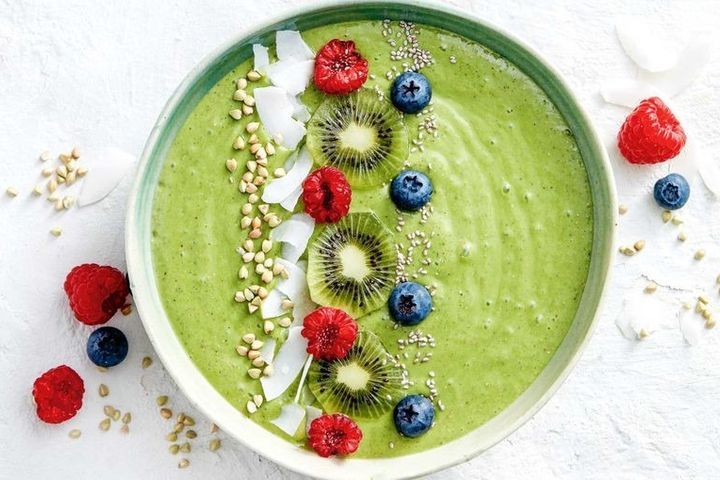
Let me hit you with this straight: the future of breakfast might not sizzle, crunch, or even chew—because it could come from a tank, brewed like beer, and born from literal bacteria. Yeah, I said it.
While you’re still flipping pancakes and scrambling eggs, tech billionaires in lab coats are cooking up breakfast 2.0—microbial proteins grown in steel vats, not farmed in barns.
Weird? Absolutely. Gross? Maybe. Revolutionary? Damn right.
Silicon Valley—the land of Teslas, overpriced matcha, and people who say “let’s disrupt brunch” without irony—is now pouring millions into a new food frontier: precision fermentation.
This isn’t just about vegan meat substitutes or soy milk anymore. Nah, that was child’s play. We’re talking about turning microscopic organisms into rich, protein-packed powders that can feed the world… or at least start by replacing your morning smoothie.
Companies like Perfect Day, The EVERY Company, and Nature’s Fynd are creating real, edible protein—without animals, without plants, without soil.
Just microorganisms, fermentation tanks, and some heavy-duty biotech wizardry. Sounds like a chemistry set, but the implications? Massive. The pitch is seductively simple: cut the cow, save the planet, feed everyone. It’s cleaner, faster, and doesn’t moo.
But don’t let the white lab coats fool you. This isn’t just about science—it’s about survival, scale, and steak without the guilt. Our current food system is choking the planet.
Livestock alone accounts for about 14.5% of global greenhouse gas emissions, and traditional agriculture is gobbling up land, water, and resources like there’s no tomorrow. Because, let’s be honest, if we keep eating the way we do, there won’t be a tomorrow.
So what’s the game plan? Turn microbes into breakfast, lunch, and dinner.
Now, let’s get personal. Picture this: you’re rushing out the door, no time to fry eggs or peel bananas, but you mix a scoop of bacteria-based protein powder into your oat milk and call it breakfast.
It’s quick. It’s packed with nutrients. It has the carbon footprint of a butterfly fart. This is what Silicon Valley wants: food that feeds billions without torching the planet.
Still, not everyone’s sold.
Critics aren’t shy. They call it “unnatural,” “lab junk,” or my favorite—“Frankenfood.” Some argue that we’re solving one artificial system (factory farming) with another one. Is it better to know where your bacon came from or to just never have bacon again?
But here’s where the nuance kicks in: natural doesn’t always mean better, and high-tech doesn’t always mean soulless. Yogurt? Fermented. Beer? Fermented. Cheese? Also microbes.
Hell, we’ve been eating microbial food forever—we just didn’t call it that while watching Netflix and snacking on string cheese.
The big bet here isn’t just on the food—it’s on the future. Investors see microbial protein as scalable, stable, and shock-resistant. It doesn’t buckle under droughts, pandemics, or geopolitical meltdowns. That’s why Bill Gates, Jeff Bezos, and even the USDA are all quietly sliding their chips across the biotech table.
Because when the world hits 10 billion mouths to feed, we either need a miracle or a microbe. And Silicon Valley is done waiting for miracles.
Does that mean your beloved nasi goreng or avocado toast is doomed? Not quite. These proteins might start as smoothie powders, energy bars, or bakery fillers—but over time, they’ll be in burgers, curries, and yes, even breakfast burritos.
The transition won’t be instant, and honestly, it shouldn’t be. Food is emotional. It’s culture, memory, identity. We don’t want to lose that—we just want to eat without setting the Earth on fire.
A wise man once said, “If you don’t like change, you’re going to like irrelevance even less.” That applies to our breakfast plates too. The question isn’t whether microbial food is weird. Of course, it is. But so was sushi in the 80s. So were smartphones in the 2000s. Now? Try living without ’em.
Bacteria might not sound sexy, but it could be the hero your fridge never knew it needed.









